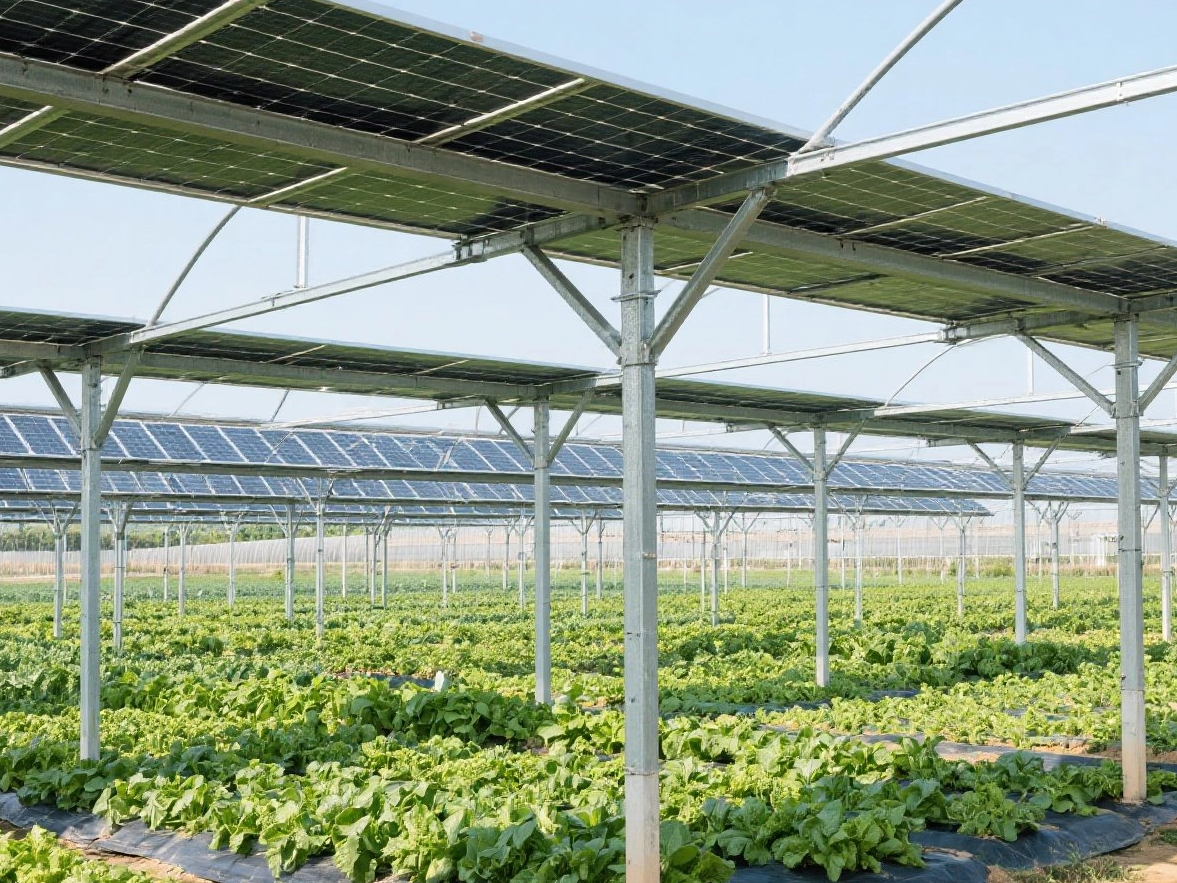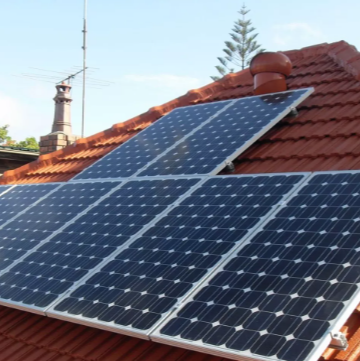


Views: 0 Author: Site Editor Publish Time: 2025-08-04 Origin: Site








Solar energy has emerged as a revolutionary solution for powering homes, businesses, and industries around the world. As the demand for renewable energy grows, so does the interest in solar panels. When making such an important investment, it's natural to wonder how long solar panels will last. Solar energy is not just about immediate returns; it’s about a long-term commitment to sustainability, cost savings, and reducing environmental impact. This makes understanding the lifespan of solar panels essential.
Have you ever asked yourself: How long will my solar panels continue to generate power? Whether you're a homeowner planning to install solar panels or a business looking for energy solutions, knowing the lifespan of your solar panels is crucial. The good news is that solar panels are known for their durability, but like any product, they come with their limitations and variables.
In this article, we’ll break down:
How long solar panels last and the factors that affect their longevity.
What causes degradation and how it impacts performance.
How to extend the life of your solar panels with proper care.
Best practices to ensure maximum return on investment.
And answers to frequently asked questions that might clear up any lingering doubts.
Let’s explore the expected lifespan of solar panels, factors that could affect their longevity, and how you can make sure your solar investment lasts for decades.

Solar panels typically last 25 to 30 years. This figure is based on the warranty provided by most manufacturers, which guarantees that the panels will continue to perform at 80% or more of their original efficiency for at least 25 years. However, it's important to note that just because the warranty period ends does not mean your solar panels will stop working. In fact, many panels continue to produce electricity even after this period, but at a reduced capacity.
One of the most important factors that influence the lifespan of solar panels is their degradation rate. Solar panels degrade slowly over time, meaning that they will produce less electricity as they age. The degradation rate of solar panels is typically between 0.5% and 1% per year. For example, if a solar panel has a 0.8% degradation rate, it will produce 99.2% of its original output after one year, and 82.5% of its output after 25 years.
While this degradation rate might sound concerning, it’s important to remember that even after 25 years, a solar panel can still be functional and provide valuable energy. For instance, if you have a 25-year-old panel that originally produced 300 watts, it might still produce 240 watts after 25 years. Although this is a reduction in performance, it is still usable for many smaller applications or to complement a new system.
The lifespan of your solar panels can be influenced by a variety of factors. While the degradation rate is inevitable, certain conditions can accelerate or slow down this process. Let’s look at the key factors that influence how long solar panels last.
The materials used in the manufacturing of solar panels can significantly affect their lifespan. High-quality panels are made with durable materials such as monocrystalline silicon, which is known for its efficiency and longevity. These panels tend to degrade more slowly than cheaper polycrystalline panels. In addition, premium manufacturers often use advanced technologies that reduce wear and tear, making their panels last longer.
Panels manufactured by well-known, trusted companies often come with better warranties and performance guarantees, adding another layer of assurance about their durability.
The installation of solar panels is just as crucial as the panels themselves. Even the highest quality panels will fail to perform if they are not installed properly. A poor installation can lead to issues such as improper ventilation, misalignment, or inadequate weatherproofing, which can accelerate degradation.
Proper installation ensures that panels are mounted securely, angled correctly for maximum sun exposure, and protected from environmental stresses like wind or heavy rain. If you're installing solar panels, ensure that you choose a certified installer with a good track record of proper installations.
The environment in which your solar panels are installed can have a profound impact on their longevity. Panels exposed to extreme environmental conditions, such as high winds, hail, or extreme temperatures, can experience faster degradation. This is especially true in areas that experience frequent storms, frost, or high humidity.
For example, panels installed in desert areas might degrade faster due to constant exposure to high temperatures and sandstorms, while panels in coastal areas could be prone to saltwater corrosion. On the other hand, milder climates with less extreme weather conditions tend to be more favorable for solar panel longevity.
Though solar panels are low-maintenance, they still require some attention to keep performing at their best. Regular cleaning and periodic inspections can help extend their lifespan. Dirt, dust, and bird droppings can accumulate on the surface of the panels, blocking sunlight and reducing energy production.
In general, cleaning your solar panels a few times a year should suffice, but this depends on the environment. In areas with frequent dust storms or heavy snowfall, more frequent cleaning might be necessary. Proper maintenance also involves checking the wiring, ensuring there’s no physical damage, and verifying that the system is operating efficiently.

Solar panels degrade over time, but this process is gradual. As mentioned earlier, solar panels generally degrade at a rate of 0.5% to 1% per year. However, some high-end panels can degrade at a much slower rate of 0.25% per year. The degradation rate affects how much electricity the panels produce each year and can be used to estimate their energy output over their lifetime.
Let’s take a closer look at the degradation over the years:
After 1 year, a panel with a 0.8% degradation rate will produce 99.2% of its original power.
After 5 years, the panel will produce 96% of its original output.
After 20 years, it will produce 84% of its original power.
After 25 years, it will still produce about 80% of its original output.
Even after 25 years, a panel can still generate usable electricity. However, most owners choose to replace them around this time because the cost of maintaining an aging system may outweigh the benefits of continued operation.
Ensuring that your solar panels last for decades requires attention to detail during installation, regular maintenance, and care. Here are some best practices to extend the lifespan of your solar panels:
A reputable, experienced installer can make all the difference in the long-term performance of your solar system. An experienced installer will ensure that your panels are correctly positioned, securely mounted, and protected from environmental damage. Make sure your installer is licensed and certified, and look for reviews or recommendations from other customers.
Although solar panels require very little maintenance, periodic cleaning and inspection are necessary to ensure they remain in good condition. Cleaning your panels once or twice a year to remove dirt, leaves, or bird droppings is recommended. Additionally, inspect the panels for signs of damage, such as cracks or loose wiring, which could affect their performance.
Modern solar energy systems come with monitoring software that allows you to track energy production. Regularly checking your system's performance ensures that any issues are caught early. If you notice a significant drop in output, you can investigate the cause and address it before it worsens.
Physical damage from extreme weather events like hailstorms or high winds can shorten the lifespan of your panels. Consider installing protective barriers or shields to guard against physical impacts. Additionally, if your panels are installed on a roof, make sure that the roof is in good condition and can handle the weight of the panels.
Solar panel manufacturers typically offer a 25-year warranty that guarantees the panels will produce at least 80% of their original power output during this time. However, some manufacturers provide extended warranties for up to 40 years, offering additional peace of mind. It’s important to understand the terms of the warranty and what is covered.
A performance warranty guarantees that the solar panels will maintain a certain level of efficiency for a set period. This can vary by manufacturer but usually guarantees 80-90% of the panel's original output after 25 years.
Solar panels are a long-term investment that can provide clean, sustainable energy for decades. With proper installation, maintenance, and care, they can continue to generate power for 25 to 30 years or even longer. By understanding the factors that affect their lifespan and following the best practices outlined above, you can maximize the performance and longevity of your solar panels.
If you're looking for a reliable and long-lasting solar solution, Haina Solar offers high-quality products designed to provide long-term value and energy savings. Investing in Haina Solar panels will ensure that your energy needs are met for many years to come.
A: On average, solar panels last between 25 to 30 years. After this period, their efficiency may decline, but they can still produce electricity at a reduced rate.
A: Solar panels degrade primarily due to exposure to UV light, temperature fluctuations, and environmental conditions such as dust and dirt.
A: Yes, solar panels can continue to produce electricity after 30 years, though their output may be significantly reduced.
A: Regular cleaning, monitoring performance, and proper installation are key factors in extending the lifespan of your solar panels.
A: Most solar panels come with a 25-year warranty, which guarantees that the panels will produce a certain percentage of their original power output during this time.